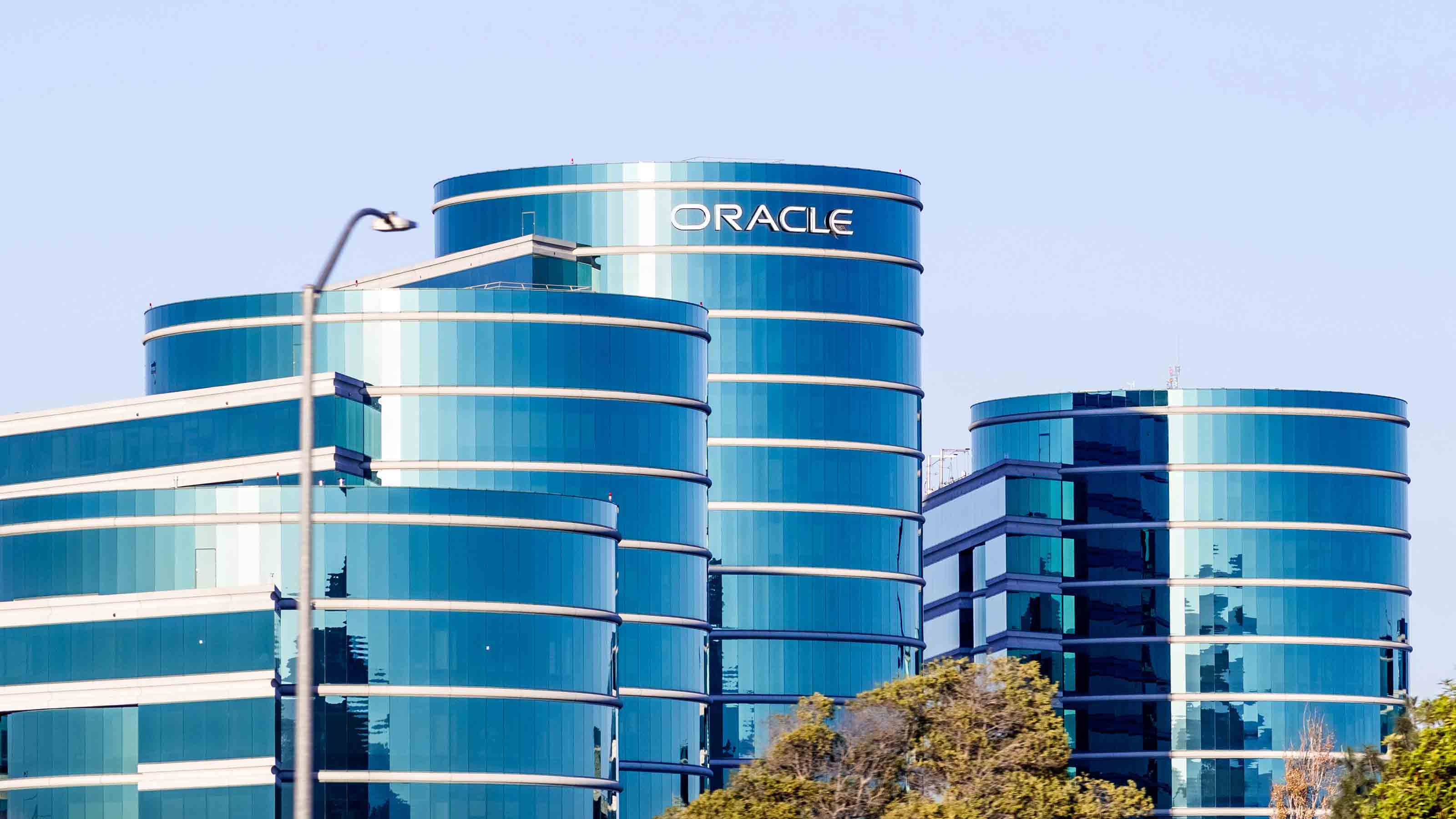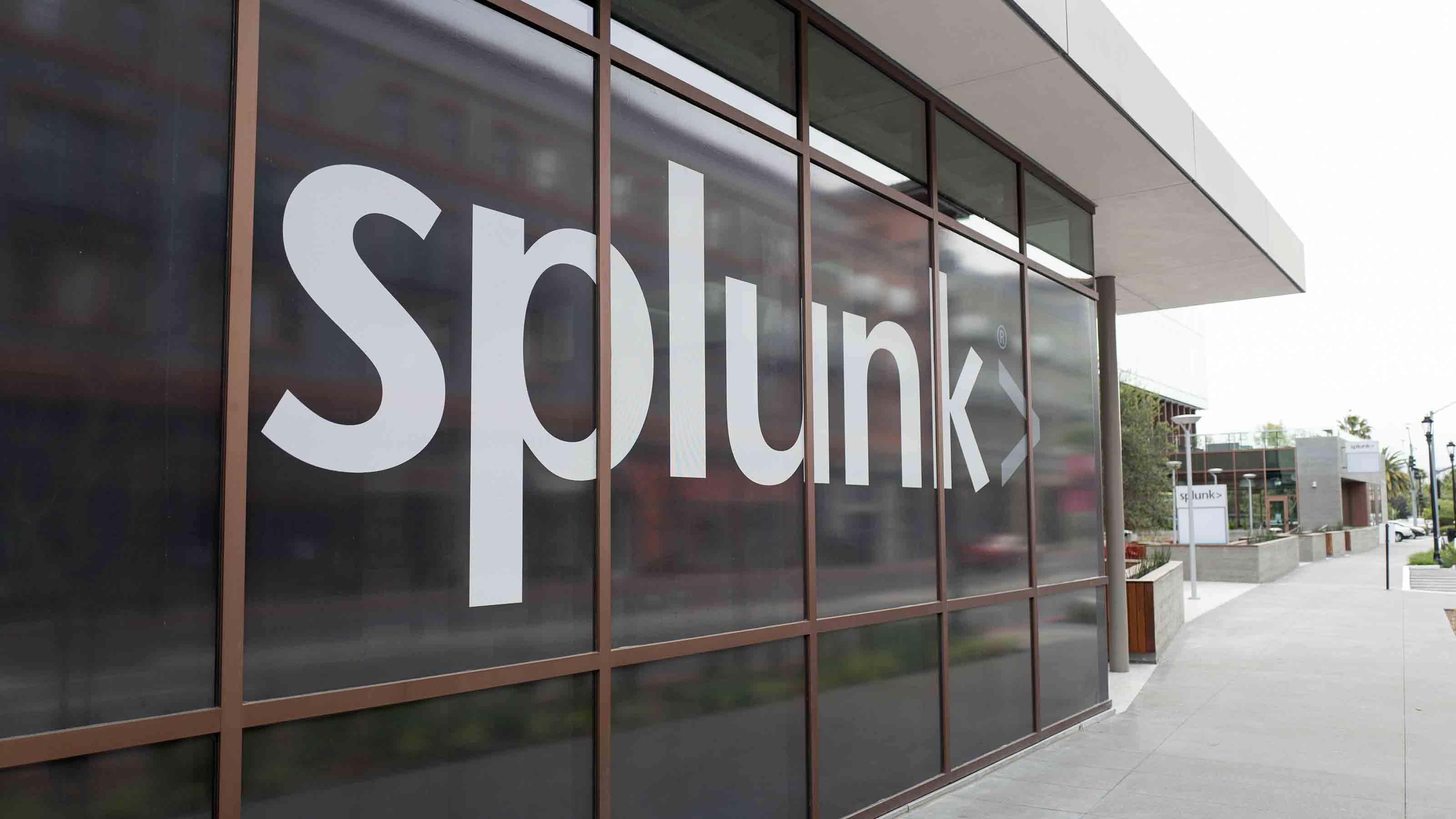5 Big Data Stocks to Buy for Big Long-Term Growth
More data, more problems ... but also more opportunity for the expanding universe of big data stocks helping companies sift through the noise.


Profit and prosper with the best of Kiplinger's advice on investing, taxes, retirement, personal finance and much more. Delivered daily. Enter your email in the box and click Sign Me Up.
You are now subscribed
Your newsletter sign-up was successful
Want to add more newsletters?

Delivered daily
Kiplinger Today
Profit and prosper with the best of Kiplinger's advice on investing, taxes, retirement, personal finance and much more delivered daily. Smart money moves start here.

Sent five days a week
Kiplinger A Step Ahead
Get practical help to make better financial decisions in your everyday life, from spending to savings on top deals.

Delivered daily
Kiplinger Closing Bell
Get today's biggest financial and investing headlines delivered to your inbox every day the U.S. stock market is open.

Sent twice a week
Kiplinger Adviser Intel
Financial pros across the country share best practices and fresh tactics to preserve and grow your wealth.

Delivered weekly
Kiplinger Tax Tips
Trim your federal and state tax bills with practical tax-planning and tax-cutting strategies.

Sent twice a week
Kiplinger Retirement Tips
Your twice-a-week guide to planning and enjoying a financially secure and richly rewarding retirement

Sent bimonthly.
Kiplinger Adviser Angle
Insights for advisers, wealth managers and other financial professionals.

Sent twice a week
Kiplinger Investing Weekly
Your twice-a-week roundup of promising stocks, funds, companies and industries you should consider, ones you should avoid, and why.

Sent weekly for six weeks
Kiplinger Invest for Retirement
Your step-by-step six-part series on how to invest for retirement, from devising a successful strategy to exactly which investments to choose.
Big data stocks might not seem like the most scintillating technology plays on the market. But their underlying companies provide a service of growing importance: cleaning and sorting an ever-swelling pool of digital data.
The proliferation of technologies from smart phones to cloud computing to the internet of things (IoT) has resulted in torrid growth of data being processed. The COVID-19 pandemic has only accelerated this pace. According to International Data Corporation, the amount of digital data generated during the next five years will be "greater than twice the amount of data created since the advent of digital storage."
However, much of these giant, complex pools of data (dubbed "big data") is effectively useless. That has in turn put heightened importance on technologies such as artificial intelligence (AI). Sophisticated algorithms sort through data to weed out noise and detect trends and other insights. Use cases include warding off cybersecurity threats, anticipating which factory equipment needs maintenance and determining whether customers will churn.
A number of software companies build tools, systems and platforms for dealing with big data. But which of these tech stocks boasts the most promising futures?
Read on as we explore some of the best big data stocks to buy right now.
Data is as of May 1. Analyst ratings courtesy of S&P Global Market Intelligence. Stocks are listed by analysts' consensus recommendation, from highest score (worst) to lowest (best).

Oracle
- Market value: $195.8 billion
- Analysts' ratings: 5 Strong Buy, 2 Buy, 18 Hold, 2 Sell, 1 Strong Sell
Oracle (ORCL, $73.40) might seem like an odd pick. It's not a pure play like the other big data stocks on this list. It's a mature company that has been around since the mid-1970s. And Wall Street has cooled on its prospects of late.
But don't sleep on this old-guard tech name, which boasts several major advantages, including a strong sales organization, a powerful global infrastructure and a trusted brand.
Oracle has been revamping its database tools, which has included heavy investment in cloud technologies. That has paid off of late – fiscal second-quarter cloud revenues were up 22% year-over-year, and its most recently reported results (fiscal Q3) jumped 24%.
"Oracle's strong FQ2 and FQ3 results and management guidance commentary for FQ4 and FY2023 reinforce our view that Oracle is well-positioned to emerge as the #3 or #4 vendor in the PaaS/IaaS market and as the #2 vendor in the SaaS market – enabling the company to continue to reaccelerate revenue growth," says Credit Suisse, which rates the stock at Outperform.
Another source of potential growth has come via acquisition. In late December, Oracle agreed to buy out Cerner – a leader in patient data systems for healthcare organizations – for $28.3 billion. Oracle plans to integrate its own systems into Cerner's platform, such as autonomous databases, low-code development tools and the Voice Digital Assistant.
The healthcare industry is poised for transformation, and the opportunity is massive; health spending accounts for roughly 20% of U.S. GDP. Technologies like Cerner's will be essential as healthcare service providers try to both modernize and cut costs.

New Relic
- Market value: $4.2 billion
- Analysts' ratings: 3 Strong Buy, 3 Buy, 7 Hold, 0 Sell, 0 Strong Sell
New Relic (NEWR, $63.27) develops software that mines substantial amounts of data to find real-time insights. The technology allows for observability, which detects errors in information technology infrastructures and fixes them. The result: Customers get better performance out of transformational projects.
The company's business model is based on data growth of just about every kind. Examples include Pixie data (for telemetry information), logs from cloud providers and Prometheus data (events and alerts). "This data set, which includes all of the data we ingest, not just the data we charge for, is growing at around 50% year over year," New Relic says.
New Relic's acquisition of CodeStream, announced in October 2021, should also be a driver for growth. CodeStream is a sophisticated developer platform that makes it easier to discuss and review code. The system makes it possible to debug telemetry data, which helps developers make better apps.
While the revenues have come under pressure, that's to be expected as New Relic has focused more on the consumption-based model, though that transition is nearing completion.
"New Relic's shift to a Consumption-based model is largely complete with more than 80% of the business migrated by the end of 3QFY22," says Needham, which rates the stock at Buy. "The remaining ~20% is expected to migrate as renewals for multi-year Subscription contracts come due."
Analysts are projecting annual revenue growth in the high teens this year and next, and while NEWR is expected to more than double its adjusted net loss in 2022, it's expected to produce a small profit by 2023. Raymond James, which rates this big data stock at Strong Buy, believes both growth and profitability will pick up over the next few quarters.

Splunk
- Market value: $19.6 billion
- Analysts' ratings: 15 Strong Buy, 9 Buy, 15 Hold, 0 Sell, 0 Strong Sell
Splunk (SPLK, $122.02), which was founded roughly 20 years ago, is a pioneer in analyzing machine-generated data. Splunk's customers have gained valuable insights as a result, whether that's through monitoring the health of IT networks or detecting cybersecurity threats.
This big data stock is enjoying a productive 2022 so far, up about 5% in a down market. That's a refreshing change of pace following the stock's steep decline in late November 2021, when CEO Doug Merritt unexpectedly resigned – one in a number of high-level departures across the year.
But there are plenty of reasons to be bullish on the firm.
Splunk received a vote of confidence last summer, when Silver Lake Partners – a top tech private equity firm whose deals include Airbnb (ABNB), Dell Technologies (DELL) and UiPath (PATH) – invested $1 billion in the company.
Also, Splunk's business transition to the cloud is flashing signs of paying off. During the most recent quarter, cloud annual recurring revenue (ARR) spiked by 75% year-over-year to $1.1 billion. The company boasted 270 customers with ARR greater than $1 million, which was nearly double the year-ago number.
The Wall Street Journal reported in February that Cisco Systems (CSCO) expressed interested in acquiring Splunk for $20 billion, but as of right now, it appears a deal will not happen. But it's still an indication that larger tech companies are looking to big data stocks as a source of growth.
If SPLK's stock price remains depressed – it's 45% off its September 2020 high and trading for around 7 times sales – other suitors might emerge. Indeed, analyst outfit Jefferies named SPLK as one of 20 small- and mid-cap names to buy for GARP (growth at a reasonable price).

Datadog
- Market value: $38.0 billion
- Analysts' ratings: 11 Strong Buy, 8 Buy, 4 Hold, 1 Sell, 0 Strong Sell
Datadog (DDOG, $120.78) is one of the top players in the big data world.
Datadog develops software to help with monitoring and security for cloud applications. It combines various must-have applications, such as for app performance, log management and real-time observability. About 33% of the customers use four or more products, up from 22% a year ago.
It also continues to come up with new offerings, such as the Sensitive Data Scanner, which helps to discover, classify and protect sensitive corporate information (a major pain point).
DDOG boasts simply staggering growth rates – fourth-quarter revenues shot up by 84% to $326.2 million, an acceleration of the full-year rate of 70%. Better still: The company is generating profits. Datadog reported 2 cents of generally accepted accounting principles (GAAP) earnings per share in Q4, up from a 5-cent loss in the year-ago period. Operating cash flow (OCF) was $115.8 million, with free cash flow (FCF, the cash remaining after a company has paid its expenses, interest on debt, taxes and long-term investments to grow its business) at $106.7 million.
"We reiterate our Outperform rating on DDOG following very strong [fourth-quarter] results that should refute concerns over the state of the observability market following deceleration at competitors," says Raymond James analyst Adam Tindle, who rates the stock at Outperform (equivalent of Buy).
We'll note that Datadog is not cheap, trading at a plump 36 times sales. But a wide swath of Wall Street's analyst community is very bullish on DDOG shares regardless of that premium.

Elastic
- Market value: $7.1 billion
- Analysts' ratings: 9 Strong Buy, 4 Buy, 5 Hold, 0 Sell, 0 Strong Sell
One of the biggest challenges with big data is that it is usually scattered all across an organization's various divisions. That can make it more difficult to usefully analyze said data.
Dutch firm Elastic (ESTC, $76.14) has seized on this opportunity by developing a sophisticated search engine for the enterprise. This engine integrates with myriad systems, allowing it to provide insights for an entire organization. It also has built a powerful self-serve model for customer adoption that has helped accelerate growth.
The latest quarter highlighted the benefits of Elastic's strategy. Elastic Cloud revenues of $80.4 million were up 79% year-over-year. The company said its net expansion rate was just below 130%, slightly above the prior quarter. And total customer count was over 17,900, compared to more than 17,000 in the prior quarter and 13,800 in the year-ago period.
There's also plenty of runway for long-term growth. The company's latest investor presentation says the total addressable market for its software tools is about $78 billion. William Blair's Kamil Mielczarek (Outperform) has a much more modest TAM estimate of $44 billion, but even then, that implies less than 2% penetration for Elastic.
"A large portion of this TAM is still greenfield, where the customer's existing observability solution is legacy, internally built, or nonexistent," Mielczarek says. "The greenfield opportunity, combined with an expected TAM growth rate of at least midteens, leaves Elastic significant opportunity to continue to grow before it will be meaningfully affected by competitive pressures."
Mielczarek is just one of 13 analysts in a crowded bull camp for ESTC, which is top-rated among the five big data stocks listed here.
Profit and prosper with the best of Kiplinger's advice on investing, taxes, retirement, personal finance and much more. Delivered daily. Enter your email in the box and click Sign Me Up.

Tom Taulli has been developing software since the 1980s when he was in high school. He sold his applications to a variety of publications. In college, he started his first company, which focused on the development of e-learning systems. He would go on to create other companies as well, including Hypermart.net that was sold to InfoSpace in 1996. Along the way, Tom has written columns for online publications such as Bloomberg, Forbes, Barron's and Kiplinger. He has also written a variety of books, including Artificial Intelligence Basics: A Non-Technical Introduction. He can be reached on Twitter at @ttaulli.
-
 Your Retirement Isn't Set in Stone, But It Can Be a Work of Art
Your Retirement Isn't Set in Stone, But It Can Be a Work of ArtSetting and forgetting your retirement plan will make it hard to cope with life's challenges. Instead, consider redrawing and refining your plan as you go.
-
 The Bear Market Protocol: 3 Strategies to Consider in a Down Market
The Bear Market Protocol: 3 Strategies to Consider in a Down MarketThe Bear Market Protocol: 3 Strategies for a Down Market From buying the dip to strategic Roth conversions, there are several ways to use a bear market to your advantage — once you get over the fear factor.
-
 Dow Adds 1,206 Points to Top 50,000: Stock Market Today
Dow Adds 1,206 Points to Top 50,000: Stock Market TodayThe S&P 500 and Nasdaq also had strong finishes to a volatile week, with beaten-down tech stocks outperforming.
-
 Stocks Rise to the Spirit of the Season: Stock Market Today
Stocks Rise to the Spirit of the Season: Stock Market TodayInvestors, traders and speculators are beginning to like the looks of a potential year-end rally.
-
 Nasdaq Leads as Tech Stages Late-Week Comeback: Stock Market Today
Nasdaq Leads as Tech Stages Late-Week Comeback: Stock Market TodayOracle stock boosted the tech sector on Friday after the company became co-owner of TikTok's U.S. operations.
-
 Nasdaq Sinks 418 Points as Tech Chills: Stock Market Today
Nasdaq Sinks 418 Points as Tech Chills: Stock Market TodayInvestors, traders and speculators are growing cooler to the AI revolution as winter approaches.
-
 Stocks Struggle Ahead of November Jobs Report: Stock Market Today
Stocks Struggle Ahead of November Jobs Report: Stock Market TodayOracle and Broadcom continued to fall, while market participants looked ahead to Tuesday's jobs report.
-
 AI Stocks Lead Nasdaq's 398-Point Nosedive: Stock Market Today
AI Stocks Lead Nasdaq's 398-Point Nosedive: Stock Market TodayThe major stock market indexes do not yet reflect the bullish tendencies of sector rotation and broadening participation.
-
 Dow Adds 646 Points, Hits New Highs: Stock Market Today
Dow Adds 646 Points, Hits New Highs: Stock Market TodayIt was "boom" for the Dow but "bust" for the Nasdaq following a December Fed meeting that was less hawkish than expected.
-
 Dow Adds 587 Points as Stocks Bounce: Stock Market Today
Dow Adds 587 Points as Stocks Bounce: Stock Market TodayThe main indexes rebounded sharply Monday after President Trump took a calmer stance toward China.
-
 S&P 500 Hits New Highs as Rally Resumes: Stock Market Today
S&P 500 Hits New Highs as Rally Resumes: Stock Market TodayTech stocks were the biggest gainers on Wall Street today, with Nvidia and Dell making notable moves.
